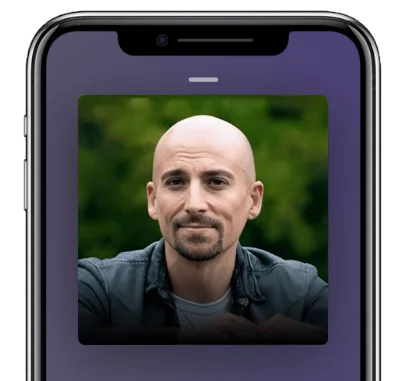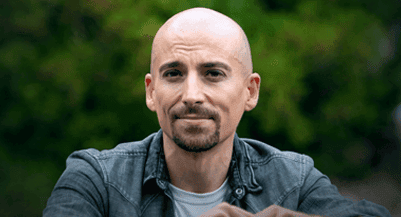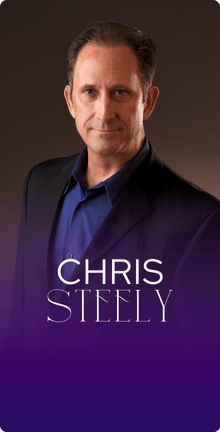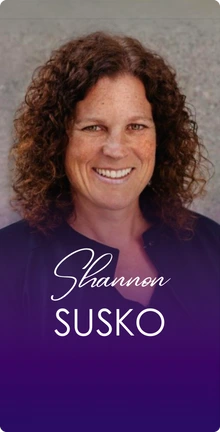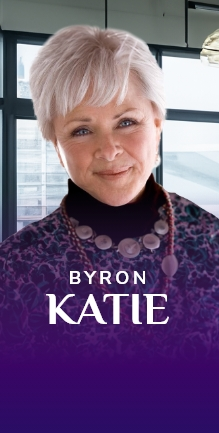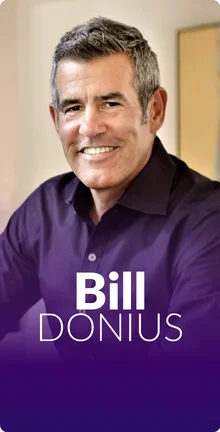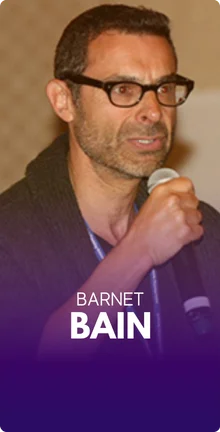In this Episode
- [00:40]Stephan introduces Cameron Brown, an executive coach, and musician. He empowers people to create lasting change.
- [06:10]Cameron points out the importance of creativity in our life and how to deal with uncertainty and challenging and stressful situations.
- [12:43]Cameron shares his experience after taking a 3-month social media break.
- [19:14]Examples of powerful questions that guide us towards aimed outcomes.
- [25:34]Stephan shares a previous interview with Shannon Susko, where she talked about a good approach to worst-case scenario planning.
- [33:59]What strategies can help break disempowering beliefs to generate wanted results?
- [38:00]Cameron talks about the importance of putting affirmations in action.
- [44:17]Stephan talks about Byron Katie’s The Work, 4 Questions, and The Turnaround.
- [48:39]Why accountability plays a huge role in gaining success?
- [58:53]Follow Cameron Brown on his social media accounts and check out his website, cameronbrown.co, to learn how to use your creative ideas into extraordinary results
Cameron, it’s so great to have you on the show.
Stephan, glad to be here.
First of all, I need to know what the heck is a National Geographic Explorer? It sounds kind of exotic. What does that entail?
Right now, at the time that we are doing this, I was meant to be back there as a project for me to create a short film about the importance of sustainable development happening in the region there. That was it. Probably with a lot of going on in the world, that might be a 2021 thing now. We’ll see but I’m excited to go back. It’s been almost three years now since I’ve been back there.
How did you get in as a National Geographic Explorer? Is there some application process? Are you nominated? How does that work?
The Explorer Program is run by the National Geographic Society. It’s such a grand program and there’s a whole application process to go through. There are grants for research, storytellers, and other people for scientific research, technology, and mine was on the storytelling side. A really important part of it is having a specific outcome that you’re aiming to achieve with whatever project it is. That’s how it happens.
Awesome. Very cool. You do presentations, keynotes, and so forth to live audiences with a grand piano on stage with you. How did that come about?
This is my 20th year of writing music now. On the professional development and personal development side, giving talks and coaching has been nearly a decade now. I’ve been working on a way for most of the years on how to bring the two together. Both had a major impact on my own life, as well as other people, through the music created and then through the coaching and speaking side.
It’s been a labor of love to bring them together over the past number of years in a way that I wanted to make sure that it was valuable and classy, not corny. I feel like I’m there. There’s always going to be another level to go through but it’s always a grand piano. It’s never a digital piano or an upright piano. It’s a way of building it into the talks as well.
A lot of the music that I write is about the topics I speak on, so there’s a reference to that. In addition to that, there are music videos. The TEDx talk I delivered in Rome a couple of years ago, now we have people from 40 different countries around the world involved in a music video. I transported a grand piano out in a place called Garden of the Gods in Colorado for my part in the video at sunrise and then pulled that all together into this beautiful, animated, split-screen video while I performed the song live on stage during the talk. That was showing how technology, when combined with curiosity and creativity, can speed up the rate on which we create impact in the world.
What tends to happen when we are faced with uncertainty is we go for the things that take us back to our comfort zone. That is not how you grow. Share on XIt depends on the talk as to which song I use. There were five new music videos we recorded in Southern Spain late last year as well. Transported the grand piano again. It was a pretty crazy location so it ends up being an inappropriate experience but then goes down into the smaller engagements as well where there’s a beautiful grand piano in the middle of the room, for example. Then sitting set up around, no video screen, no backing music, or anything like that. Just an intimate setting.
It’s making sure that the organizers and I are on the same page about what the theme is for the conference, how am I going to play a role in fulfilling the outcomes they’re looking to achieve, and then doing all we can to get it out to the park.
That’s awesome. Let’s talk about creativity and how to unleash our creativity especially in these interesting times that we’re in, with social distancing and everything like that. How do folks spark their creativity? How do they get into that creative genius, that zone of genius or whatever you want to call it? I think you might have some strategies for us.
The stuff that’s working well for me. I’m inclined to, at the moment, and I’ll give some concepts from a behavioral point of view, then tactical as well. When you think about creativity, it lives in the same realm as curiosity, as possibility, as things you don’t know the answer to yet. That’s why you’re coming out of creative ideas. It’s something that you don’t have an answer to right now.
That’s all in the unknown and what tends to happen when we are faced with uncertainty, challenging situation, stressful situation, is we go for the things that we know. We go for our comfort zone. It’s the same as if you imagine back into the cavemen and cavewomen times. Going outside of the cave, if you go too far outside the cave and you haven’t got tools to be able to deal with whatever comes your way, then you’re going to end up either injured or dead. So people won’t necessarily venture far away from the cave. They know it’s not safe and whenever they see, let’s say there’s a saber-tooth tiger out there, they run back to the cave.
The key thing when it comes to whether it’s fear, lack of mentality, scared, needing things to go a certain way, trying to control things that are outside of your control, it’s all in the exact opposite direction to creativity. It’s all in the exact opposite direction because it’s everything you currently know.
When you think about creativity, it lives in the same realm as curiosity, as possibility, as things you don’t know the answer to yet.
It’s everything that is safe and comfortable. What I’m sharing with clients at the moment, and for myself as well, in the face of being so far outside of your comfort zone which a lot of people are right now, is to find things that do bring you comfort. They could be the smallest of things.
I remember years ago, I was living back in Australia at that time and I had what I called the certainty walk. It was a specific direction that I would walk in. Specific route that I would go on. There was a certainty locker that I had at the gym. Specific number of locker that when I felt so far outside of my comfort zone, I knew which locker I was going to go to.
When I was inside my comfort zone too much, I’d get some variety for the day. It’s important knowing where you are as to what you’re experiencing during that time because, on the opposite end of the spectrum, you can feel not enough stimulation and need that. It’s a need to get outside of it even more.
When it comes to the creative side from a tactical point of view and how you can actually make that happen, what I say is creating not only a physical space but also a psychological one. By the way, this can be eating the same food. It can be doing meditation first thing in the morning. It could be having a bath or a shower exactly at the same time.
Going into a business. It could be having these different meetings at a specific time of the day, specific times of the week. It can be checked-ins. It can be accountability rhythms. Making sure that you have blocks of time where you know what you’re going to be focused on for that specific amount of time.
There are many different examples. I could share just a few actual examples. Once you get that foundation in place, that allows certainty to be taken care of, then you can start playing in the unknown.

The strategy that I go for is psychological and physical space. A lot of people may have a lot of physical space right now or maybe not because they’ve got families at home and all of a sudden their one-bedroom, two-bedroom, three-bedroom, five-bedroom place has people in it. They don’t even go to the office either so you don’t necessarily have the physical space. To be able to create things that you haven’t created yet, there needs to be space for that to be created into, for something to come into existence.
So creating the physical space first and foremost, it could be a room in your house. It could be changing the furniture around. Maybe you can get outside wherever you are in the world at the moment or when you’re listening to this. Then from a psychological space point of view and mentally, it’s creating the space.
What I do is I have every single Sunday, unless it’s Saturday or unless it’s another day, I take a day completely free of technology and completely free of time. For the entire day, I have no idea what time it is. I just did this yesterday and I have never had a time in my life, musically, where I’ve been more creative. I’ve written more music than I have. I wrote double the amount that I did last year in the entire year. I’ve achieved all of my creative goals for the entire year—I’m already several months into that. It’s been insanely remarkable doing that consistently every single week.
In a time where we have increased levels of stress, we need increased levels of recharge as well to be able to deal with the increased challenges that are coming our way.
The second part is it allowed me to recharge and recharge well. In a time where we have increased levels of stress, we need increased levels of recharge as well to be able to deal with the increased challenges that are coming our way. Again, that is going to allow you to play more and more in the unknown. I found it to be incredibly valuable. Clients are doing this as well. Maybe not talking a full day because they may not be able to, but taking half a day, three hours, or two hours, things like that. There are a couple of tips there.
The other thing that I would suggest is when it comes to you being in that space. Now, not only do we have the foundation taken care of, but you also have created the space and you’ve done that both physically and psychologically, then comes the tactical environment of how do you come up with the creative ideas. To give you some insight there, one of the ways is utilizing the power of questions and then within those questions, utilizing curious language and curious tonality.
What I mean by that is you’re going to ask a great question but have poor tonality that leads you back to fear. It could be, “Oh, man. How are we going to get through this?” You notice the tonality in my voice. It is fearful. My answer to that is going to be, “I don’t know, but I’m getting out of here.” There’s too much fear that’s playing out there, but you use the same language.
How are we going to get out of this? How are we going to do this? Same language, different tonality. The tonality can help to guide your curiosity in the direction that you’re wanting to get going. Same with the language that you utilize in that frame of reference. It goes, “With all the challenges that are going on right now, what are seven different ways in which we could increase sales by 15% while lowering the cost by 20?” All of a sudden there’s a question to be asked which starts your mind thinking about the answers to how that could come to fruition. So, curious tonality, curious language, the power of questions. When it comes to questions, what-if questions, how questions, what questions are great ones, to begin with.
That’s all great stuff. I wanted to unpack a few things here. First of all, with regards to taking these half-day breaks and things from social media and stuff. Are you proposing that people take entire weeks or months off from social media? I noticed on your website that you said you’re going to take three months off from social media. Like cold turkey, no interaction for three months. Did you end up doing that?
Once you get your foundation in place, then you can start playing in the unknown. Share on XI was in Europe at that time. I just arrived for recording new music over there and I felt a pull towards it. There wasn’t a plan, to begin with, to do it, but I felt a pull towards getting off for a small amount of time, probably going to be a week or two, then I got off it. We were insanely creative over there and executing what we needed to from the music production point of view with my producer over there.
I felt really good just to do it. It was a cold turkey thing but I felt ready to do it. I still had email because I’m still working with clients. I still had video conferencing, but as far as social media, I completely deleted them off my phone for that time. After the three months, honestly, I was a bit bummed that I had to go back on. To go back on, to share some insights and things like that, but I could have easily gone for a period longer than that and would have still been okay with that.
I’m using it much more deliberately now. Most from a client’s point of view comes through speaking engagements, referrals, and relationship development. I still use LinkedIn for that, but as far as posting and being on that realm, not so much anymore. I found huge benefits in creating space and it’s been amazing.
Are you proposing that other people do that too? They take entire months off from social media or is this just for you?
What I would recommend is to understand what the outcomes are that you’re looking to achieve, to understand where you are right now, to understand what gap is there, and then what are you going to do to fill that gap, to be able to achieve the outcomes you want.
For me, in that time, those three months, it was how do I increase the amount of creativity. From a client’s point of view, I wasn’t looking for any clients. There wasn’t any business development side going on during that period because there was a lot of servicing on what I needed to deliver on for both coaching and the music side of things. Being laser-focused on that was incredibly important for me during that time.
Take away what other people say you should be doing and get clear on where it is you want to be, a big goal, and then where are things right now and what are you going to do to solve that.
I knew I had clarity on it. What is the outcome that I need to achieve? Take away what other people say you should be doing and get clear on where it is you want to be, a big goal, and then where are things right now and what are you going to do to solve that. That’s my highest piece of advice there because whether it’s me or someone saying you got to be on social media and me saying don’t be on social media, find what works for you and find the rhythm that allows you to achieve the objectives that you’re setting out to achieve.
If that means hiring somebody to do it while you’re off, for example, rock on. Maybe it’s a day, maybe it’s a week, maybe it’s a month, maybe it’s a year, whatever it is that’s going to allow you to achieve your outcomes and allow you to experience the fulfillment that you’re wanting both personally and professionally.
You also mentioned these certainty walks that you would go on and this certainty locker and all that. I’m curious, what inspired that? I’ve heard of the six human needs from Tony Robbins where he would teach certainty, variety, significance, love and connection, contribution, and growth. Those are the six human needs. Is that what inspired you or was it something else?
Back then, I was pretty early on into the coaching journey. That was one of the frameworks. There are some other frameworks around survival as well and what we need to simply survive, first and foremost, which is another version of what Tony called certainty, safety, comfort. Different mechanisms explain the same thing, but Tony has a remarkable framework for that. That’s an inspiration for that back then. When I think about it just going back 9–10 years that would have been part of the inspiration.
Do you have an example of a client who implemented this system and incorporated certain elements of certainty into their daily routines to help them get more creative and loosen up a bit?
Yeah. You’re talking specifically about creativity?
It doesn’t have to be. It could be some other breakthrough that they achieved by using these certainty triggers.
To have clarity about what’s working and what’s not is so vital especially during now because it’s a requirement for you to adapt to whatever’s coming your way.
One of the major ones for me—because I’m working mostly with organizations—is building in certain accountability rhythms and meeting rhythms. Whether it’s a Monday and a Friday is often the case of understanding what needs to be achieved for the week. Friday celebrating the wins that we did that we achieved for the week. Then, on a monthly routine, I get them to answer four key questions. They can do this on a personal level or a team level.
An example within a team level, they’ve gotten together at the end of each month and answer the four key questions: What worked? What didn’t? What am I going to do about it? And what do I need help with? I worked with the entire executive team. They build it into their reporting, the teams that report to them as well, so it’s done every week. Again, what worked? What didn’t? What are you going to change? And what do you need help with?
That helps to give the leader, which is the person that I’m working with, an increased level of certainty about what the team is doing, what they’re not doing, what they are changing, and what they need help with. To be able to see the gaps that are there, to avoid micromanagement when it doesn’t need to be there, and to allow them to go deeper if they need to. To have clarity about what’s working and what’s not is so vital especially during now because it’s a requirement for you to adapt to whatever’s coming your way.
Increased level of certainty allows you to loosen the reigns and allows more autonomy, more accountability from them, and that comes in as well. When you get accountability, the rhythms build in what they were going to achieve for the week and what they did achieve for the week. You can start holding them more accountable when they need to and then help them do the same with their team. That’s a pretty practical example of increasing accountability, that allows our leaders to then focus on what they need to focus on to grow the company rather than just having to performance-manage all the time.
Is this what you’re referring to earlier as a power of questions? Those kinds of questions?
They’re some great examples of questions. Another great question that could be asked, Pixar does this with the storyboards that they create. What-if questions. An example I gave in business talks, what if there’s a way to increase sales by X% while decreasing expenses at the same time? Pixar does it. What if there was a group of toys that came to life when people left the room? What if there was a robot that lived on a foreign planet? We have WALL-E. There are what-if stories all of sudden. What if that was true? If that was true, then this would happen and probably this would occur, and this could occur.

The same goes for sales. If that was true, we probably would be following up much more diligently and maybe we’d be utilizing this strategy instead of this expensive one over here. All of a sudden, it gets the mind thinking. If that was the case, now I can see how that would play out. That’s some examples.
Language in general, especially the quality of questions will tend to determine the quality of your answers, which then determines the quality of your outcomes. Getting clear on what questions to ask that can guide you towards the outcomes that you’re aiming to achieve, then answering them in a productive and empowering way, then most importantly taking the action because just coming up with a bunch of answers isn’t going to help anybody. It’s not going to produce the impact that you’re wanting to make. It’s not going to allow you to achieve the results you want to, especially now. It takes massive action and if you’re not taking that, then you’re just coming out with a bunch of ideas that have great potential but without any execution.
All good points. Because so much of your business is based on speaking at conferences and big events, keynote speaking, I’m sure you’ve had to do quite a lot of what-if question asking of yourself to see like, what if I don’t need to get on an airplane to make the same money as a keynote speaker? What if I don’t need a grand piano in order to give the best impact possible to my audience? I would imagine you’ve done a whole bunch of what-if questions for yourself. Can you give us a few examples and what some of your answers were?
Exactly, what you mentioned there and another one is, what if there was a way to create everything that I want without speaking? Is another example about because if it were to occur, the worst-case scenario that there simply weren’t any engagements at all, I’m looking at—and it’s the key here—work out with those worst-case scenarios and how would you deal with that.
The quality of your questions will determine the quality of your answers, which determines the quality of your outcomes.
I’m in a fortunate position where coaching is a large part of the business model and it’s private with executives of reasonably large organizations. It all has been done for about six years now completely virtually. There wasn’t much change to be made there and luckily—I do say luckily because there’s no going around it—there was a big event that I spoke at earlier this year that produced some outstanding outcomes.
With that, there were some opportunities in multiple countries that have now been put on the back burner, postponed, or even canceled. It’s about five, six different countries for speaking engagements. Some of those I got a grand piano to the right of me. I’m not sure that comes up as left or right on the screen, but to the right of me here. Just later this month, we had an event that was scheduled about a week ago. Originally, we had scheduled to do it either later this year or early sometime in the first half of the next year.
Then, we jumped on a call just last week and said what if there was a way for us to turn it into a virtual event and still deliver a remarkable experience? So later this month, we’re going to have the grand piano included in that. We got the way to set it up, we’re sending out a package to each of the people that are attending that some of the stuff that they would have received if they were attending and a couple of things that are going to enhance the experience. That’s happening in about a few weeks.
It’s a way of if you got a grand piano in your place, it could still be done as long as the setup is good. I’m excited about that. In saying that, there’s no ability to do that all the time. I’ve got another talk coming up at a university. They have a room set up where there’s a wall of screens and it’s like doing a video call on steroids because it’s a massive wall of huge screens and each screen is for an individual user. I’m delivering that. I’ll be there in the room alone aside from the tech guy which will be socially distanced. I got permission to be on campus and you need special permission to do that. That’s all being set up, so that’s another way of delivering that.
Another example, there are several groups that I already delivered to where I got them to answer those actual questions that I shared before. What’s working for you right now? What’s not? What do you need help with? These are strangers and I was invited to deliver a talk to them and I customized the talk for them specifically rather than being content that I wanted to deliver. It was what they really needed right now which in moments of stress and strain usually and often it is I just need help with this right now. So I got ten golden nuggets of information and just fired it at them each for what ended up being two hours. It was only meant to be an hour talk, but they asked me to keep going.
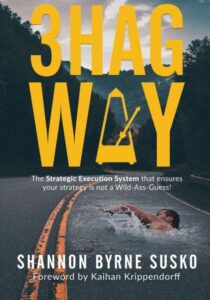
That’s just a few examples of adaptability from my self that maybe somebody tuning in can think through. A key there, though, again is ask the questions to begin with, plan out all the different scenarios – both good and bad, write down into the absolute worst-case scenarios, and work out what you are going to do about it. If it happens or when it happens, you’ve already planned it out and you could be proactive in your response to it.
That reminds me a little bit of the interview I did recently of Shannon Susko. She’s the creator of the 3HAG (3 Year Highly Achievable Goal). She’s written the 3HAG Way, she wrote the Metronome Effect. Her approach to worst-case scenario planning, let’s say that you need to make budgetary cuts. Instead of starting at the top and saying we need to cut 10% of our staff or whatever, then if things get worse, we’ll need to cut another 20%. That’s very painful, psychologically speaking, that you want to procrastinate the heck out of that.
Whereas if you start in the worst-case scenario that you have no more cash coming in. How long can the business survive with no more cash and figuring out the days of cash that you have left? If I get just my very core clients to stay with me, what revenue does that represent? How much can I do with that in terms of my expenses, my payroll, and all that? Then, work your way up from there.
Well, my next set of clients who are somewhat resilient but not totally resilient to the economic downturn, what if they stay with me as well. What team would I have, expenses, et cetera, and then work your way up from there. Psychologically speaking, it’s a lot easier and then you get the plan. If you need to dig deep into halfway into that plan, you’ve already got it figured out.
I like it. It’s important during these times. It’s the same thing that you’re doing. In that example, you just shared the same thing that you’re potentially having to do, but how it impacts your psychology is completely different, as you mentioned, and during this time, doing things, finding ways, having the tools and the strategies to be able to stay empowered, and stay adaptable to change is one of the most, if not maybe the greatest asset that you have right now. Cash flow is pretty important as well.
Cash is king. This adaptability, what Tony Robbins refers to as resourcefulness, that your best resource, in his opinion, is your resourcefulness, if you were to give some tips on how to increase your adaptability and flexibility in these times of stress and uncertainty, what would you suggest?
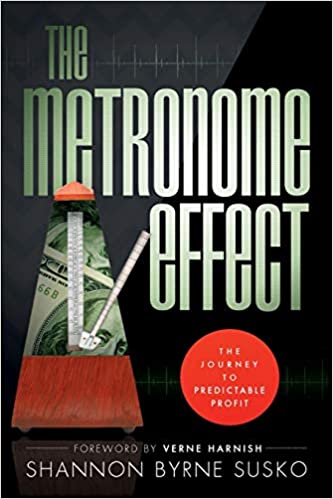
One of the ways that I go about it with my own self and then with clients as well is to have first off the certainty of outcome, then flexibility in your approach. You must understand what it is that you want to achieve still. Why you want to achieve that can help you generate your sense of purpose in the face of uncertainty. But then, as many people might be experiencing, it’s not necessarily going the way that you wanted it to.
In terms of your flexibility there, the first piece first up is simply knowing about the importance of flexibility. I remember Bruce Lee once said in an interview—black and white interview from years ago— “Be water, my friend.” He says that the water is formless, it’s shapeless, it becomes the cup. I liken it to flowing down a stream.
If you imagine down a stream or a river, if you’re your physical self and you come up against some rapids, the worse the rapids get the worse you’re going to feel to a point of, maybe you’re going to end up not here anymore, but if you’re the water, it doesn’t matter how massive those rapids get, you’re going up around, over, and right out to the same outcome.
Your body if you end up not being here anymore, your body is still going to end up in the ocean. The water is going to flow down and lead there. Ensuring that you have that mindset that you are not in a science lab. Yes, at the moment, there are increased levels of uncertainty. The reality is though, at any time, you’re not in a science lab. There are external factors that are happening that are somewhat outside of your control, sometimes very outside of your control.
Being adaptable to that external environment is vital. That’s the first tip that I would get. In terms of having the resourcefulness, adaptability, and flexibility, all built-in there really comes back to what we talked about before, which is that the questions are a big part of that. Having quality questions allows you to come up with the answers that can help you adapt to the changing situation.
All right, what are all the ways that we can solve this? All right, what else? What else that allows you to go around this rapid, over this rock? Adaptability comes from the quality questions coming up with the answers, and again, then executing. Resourcefulness over resources is vital there.
Completely understanding where you are right now and knowing what gaps you must fill is a great head start to your desired outcome. Share on XResourcefulness is having as a matter of what you’re exposed to still being able to find that answer. That’s the other part that I would suggest is having the belief that there is a way to be able to do this. I was on a call just two, three hours ago with somebody who had mentioned, one of their colleagues said we’re never going to be able to have what we had before.
That’s a massive limiting belief because it’s closing off. It’s not a limiting belief and completely generalized view of the world. You haven’t been into the future? How can you possibly know? If you’re going to believe something, you might as well believe something that’s supportive of your success. Plan for worst-case scenario still, which is what we talked about before, and that’s a big part of adaptability as well because then, no matter what situation you’re exposed to you have a scenario plan out each of those situations, and you’re able to then deal with that in a more, at least somewhat proactive and strategic way, versus the way a lot of people are facing this right now which is very reactive.
When it comes to belief systems, if you’re not experiencing life as you want it right now, challenge what you believe about what you’re experiencing right now because you can’t necessarily control what happens, but you can control how you respond to what happens.
The beliefs that you have determine how you’re thinking and they determine the behaviors that you execute on. If you’re fearful right now, there’s a very good chance—I almost would like to say there’s a guarantee—that there is a limiting belief that’s playing out underneath the surface that is holding you back from achieving what you really want.
You can’t necessarily control what happens, but you can control how you respond to what happens.
Find what that is, get clear on what that belief system is, then switch it to a more empowering belief. Because at the end of the day, all beliefs are made up based on our assumptions as to what we believe to be real. Even scientific beliefs, over time, have been proven inaccurate. What we believe to be absolute fact, scientific proof or scientific fact have turned out to be actually false.
A belief is something that’s conveniently true until proven otherwise. If you’re going to believe something, you might as well believe something that’s going to help you get to where you want to go, if that’s where you want to really go.
In summary, there are no true beliefs. We’re never going to get back to the pre-COVID-19 world is a belief. There’s no truth in it because unless you are a time traveler, you can’t know that to be the case.
Get in touch with me. You know I’m saying? Give my contact details in your program. Get in touch. I’d love to hear from you.
I’d love to know what those lottery numbers are for next week. There are empowering beliefs and then there are disempowering beliefs, and you get to choose which ones that you take in and allow to take a foothold in your consciousness and in your life.
All beliefs are made up based on our assumptions as to what we believe to be real.
Big time. There was a talk I gave a couple of years ago, and the CEO of a multi-million dollar company, $100 million, $200 million stock or something like that, midsize company. I’ve given a talk and it was specifically around belief systems and the ability to adapt those. She came up afterward and said, “You can change them?” It was just a foreign concept to her and has been hugely impactful going forward, for what they’ve been able to create now, and being able to be adaptable to both personally and professionally.
Whether you’re just starting out, understanding this concept or whether you’re very advanced and already know that, same goes, if you’re not getting the results you want, look at the belief systems that you’ve got. Utilize the strategy for changing those beliefs and make sure that you’ve got those beliefs that are going to allow you to generate the results you want.
What would be some strategies to change a very rigid, regimented belief system? That could be about anything. It could be about how people are supposed to be in the workplace. It could be about relationships, intimate relationships. It could be about spirituality or religion, anything, but these are holding the person back and maybe they don’t even have a way forward, or they don’t even see that they have a rigid belief system. What would be some strategies that could help break those down and replace them with better beliefs that are more empowering?
It’s a great question. We talked about the power of questions. It is a great question. When it comes to switching these beliefs, first off is you’ve got to understand just quickly as well. When it comes to beliefs, it is first about understanding what do I actually believe about this? Getting clear on that first and foremost, okay, I believe X. So now, it becomes the question of—this is again where the power of questions comes in—is that supportive of my success? If it is, keep doing it. Or you could maybe go these are beliefs that I could build in here that could upgrade that to an even better example of what I could achieve.
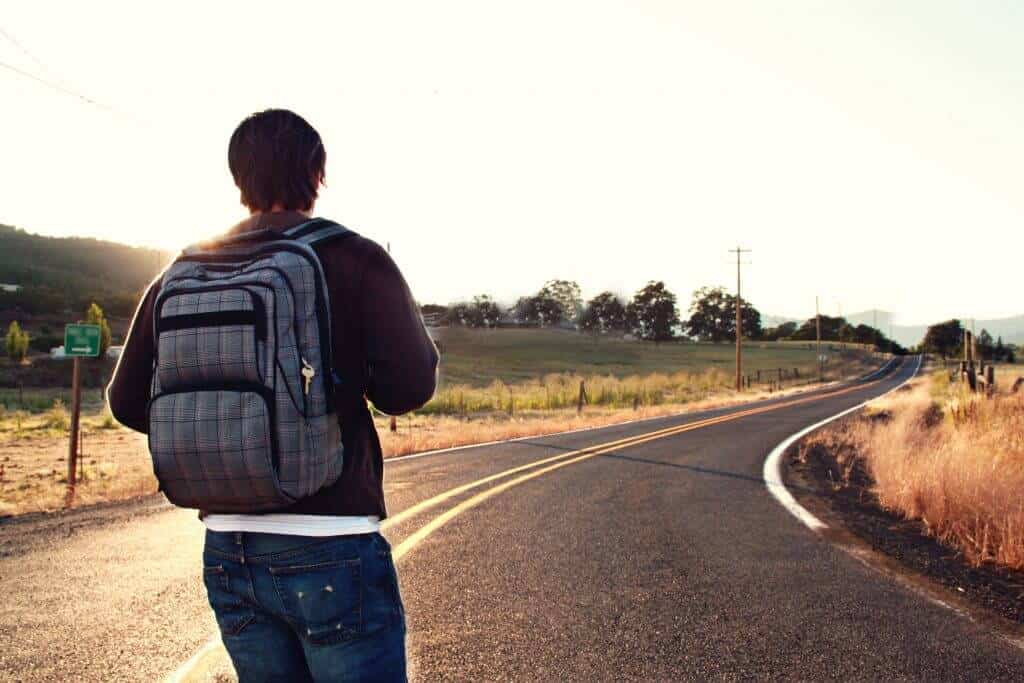
If it’s supportive of your success, you’re doing okay. If it’s not, then you ask the next question. Is it true? Usually unconscious mind, of course, it’s true because you want to prove yourself right. Prove yourself that, I haven’t been lying to myself this entire time. I’m not crazy. What you then go, well, is it true all the time is the next question. Is it true all the time?
Every single minute of every single day that belief is true. How do you know is another question you can ask. How do you know that it’s true every single time? Somebody believes people can’t be trusted. Or it’s the big one at the moment, people at home, because there’s remote work now, I don’t know if they’re doing their work.
It could be people at home or just on Angry Birds playing their games. They’re not doing any work. That’s a belief that could be formed. That’s going to lead to an increase or decrease of trust. A belief that they’re not as productive as what they could be, more frustration from the CEO, maybe less accountability or more accountability. If it’s more accountability, it could lead to micromanagement when that didn’t need to be there and build some appropriate accountability rhythms in place.
That again becomes, is that true? Is it true all the time? What you’re doing there is you’re establishing why the belief is false. Those questions are helping you to disassociate from the belief which so far, if it’s been something you’ve been closely holding as a belief of yours, that this is true in the world. This is true of myself or this is true of my team. This is true of all wherever it is that may be of my relationship.
I’m going to hold that close to me because it’s part of my identity, because of what I believe. This is what I believe. When it comes to that, it’s first about understanding and disassociating from the belief system, to be able to see it for what it is, a lie. A convenient assumption. You go, “Oh, so this isn’t actually true. I’ve been bullshitting myself this whole time.” Now can come a time where you can shift it. This is where things like mantras, these types of where you say things, put them up on your wall and say them out loud every day.
Create some form of action that’s required for you to do within that belief system that leads to that becoming the outcome.
Affirmations.
Affirmations, that’s the word. They can be very effective, but if you don’t believe them, unconsciously your belief is going to go BS, not sure, and that can solidify how much you are kidding yourself if you don’t use those effectively. I’m not saying don’t use them, they are amazing. If you can build them in with what I’m sharing here, they can be incredibly useful, but if you use them on a loan, it’s like putting a bandaid on an infected sore.
You need to treat the infection first, then put the bandaid on top to allow it to heal, to allow it to be protected. It’s the same as building a house. We’ve knocked the entire house down and we’re going to build a completely different house on the same foundation. It sounds crazy like that. That’s what people do. They go, I’m just going to think differently here. I’m going to take a different action. I’m going to exercise more. I’m going to communicate better in my relationship. I’m going to hold people more accountable in my business.
That’s an action, belief first. Switch the belief to a more empowering one and this is where you switch it to go. What’s a more empowering belief that was more empowering than I could believe about this. What I love to do in this is create some form of action that’s required for you to do within that belief system that leads to that becoming the outcome. I barely shared this outside of my clients.
The way that this operates—I’ll give a personal example here—a limiting belief about from a health and well-being point of view, I was eating more processed stuff than what I had before. One of my biggest values is freedom. Freedom is a great value to have, but it can be a little bit of a thing as well because I can offer freedom to eat whatever I want. That was the belief system. If that alone, it leads to me eating more processed food. Now I eat a vegan diet, and I’m usually reasonably healthy, but there have been times where I’ve eaten more processed food than I wanted to.
I switched that belief and I switched it to I have the freedom to eat whatever I want, and consistently choose that which results in me feeling empowered, energized, and alive. The beauty in that belief, what I was mentioning about the action is it’s me, first of all, and this is where you can start building in values and belief systems without going too deep. It’s where you can start building this in though, so I have the freedom to eat whatever I want.
The four key questions: What worked? What didn't? What am I going to do about it? And what do I need help with? Share on XThat’s me saying, “Dude, you still have the power, you still have your freedom. You still have the ability to eat whatever you want.” The second part of that and consistently choose that which results in me feeling empowered, energized, and alive. If I find myself not achieving my health and wellness goals, I can look at it and say, “Have I been consistently choosing that which results in me feeling empowered, energized, and alive?” It allows me to now take responsibility for what I have done or haven’t done to allow that to become the results.
That’s been a kicker. That belief if you’re having any challenges around health or well-being, utilize that belief. Ever since utilizing that it’s been game on. That’s the number one belief. There are others as well, but I do tend to switch my values and belief systems around that. That’s a great one. That’s it. That’s an example about switching it. The key there as well is its got to be believable.
If it was just switching into something like this, let’s say somebody said, “I don’t trust anybody.” You go, all right, let’s put that belief over to be I trust everybody. That’s a stupid belief because you go down a dark alleyway, and there’s a shadowy creature down there, you don’t just go up and shake their hand, definitely not during social isolation times. Even in normal times. You wouldn’t go down there. You go, that’s not a trustworthy figure. Not a trustworthy environment. I’m out of here.
Your safety is reliant upon that. You might go, with the appropriate decision-making criteria, I’m able to trust people well. Then there’s an action involved again. There’s a specific action you’ve got to take. What’s your decision-making criteria that allows you to know whether it’s worthwhile trusting somebody or not? Step by step by step. Then, if somebody breaks your trust, you’re able to go back and say, “Let me look at that decision making criteria,” which again, allows me to take responsibility for my part in why the trust was broken.
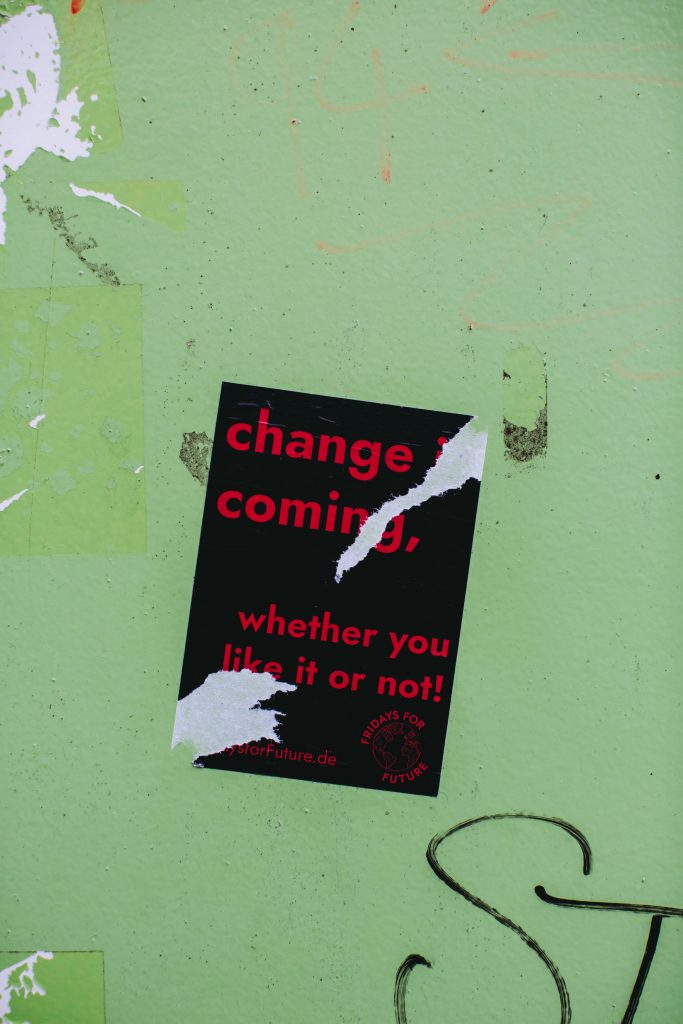
It could have been someone that broke my trust that maybe I didn’t see it coming based on the criteria that I had. Okay, time for me to add a step to my criteria. Time for me to remove people that may have exhibited that type of pattern. Maybe it was a narcissist pattern of behavior. Maybe something that I hadn’t seen before, that allows me to upgrade myself for me to get a different outcome next time around.
I found that person that takes responsibility in a situation is the person that gets to create the change. The person who blames the external is the one that stays with the pain because they’ve just given away their power. You said it’s your fault, therefore you’ve just given away your power completely. They might still be some form of fault of that external person, thing, experience but what I like to do and same with my clients is go, how can I take responsibility for my part in this?
Maybe it was that you didn’t deserve to be treated a certain way, but you allowed for yourself to be treated that way in the first place because of your lack of standards. That’s some of the things that I suggest there.
That’s great stuff. It seems like you’ve found a way to work in a moral compass into your goals and affirmations. I have the freedom to eat whatever I want, and then you have the moral compass that helps keep you on track. That’s awesome. What you’re describing about those questions is this true and is this true all of the time? That reminds me of Byron Katie and her four questions. She calls it The Work, four questions plus the turnaround.
Is it true? Can I know with absolute certainty it’s true? What would life be like if this thought didn’t exist? And how does this thought make me feel? The turnaround is to convert your thought into the opposite of that or multiple opposites like my belief is this person doesn’t like me, an opposite would be that, well, actually, I don’t like this person, or this person really does like me as another opposite, another turnaround.
Run the four questions through on that turnaround, you can oftentimes find that the turnaround, the opposite is actually more true than your original belief. That is such a powerful framework and she calls it The Work. I’ve interviewed her on this show. She’s amazing. I don’t know if you’re familiar with her four questions.
It’s important that you have an understanding as to why you’re going to change and what it’s going to mean if you change.
No. That makes a lot of sense, though, because when it comes to a turnaround, as you call it, as she calls it, ensuring you understand first and foremost where it came from, disassociating from that – which helps with those questions, disassociating from how was increasing the amount because there’s pain and pleasure involved in that framework as well, there’s so much pain associated to being and staying that way that I’ve got to move away from it.
On the opposite end of the spectrum, there’s so much pleasure associated towards moving towards it. We’re either going to move away from pain or towards pleasure. Different people are wired in different ways. It is still what that makeup is and what the percentage split is, but in the end of the day, that’s that. If you haven’t got a big enough reason why you would do it, which can be pain-associated or pleasure-associated, then why would you change?
That’s a great way. It takes care of each of those. It’s really important that you have an understanding as to why you’re going to change it and what it’s going to mean if you do change that.
When you were talking about affirmations earlier, that reminded me of a distinction I learned not too long ago about affirmations that it can help you to internalize it and take it in as true much more easily if you try it in the first person, second person, and third person, and then see which resonates the most. I am a healthy eater is one version, you are a healthy eater, and I tell that to myself, or Stephan is a healthy eater.
What you just mentioned there is great because everyone represents their world differently and it’s working out what works well for you. When I go through with clients about the self-talk that you have. For me, similar to what you mentioned there, I’m usually in a third person where I am gone because I see myself as two versions of myself or the physical version and a non-physical version of myself co-creating constantly with the universe.
The quality of your questions tends to determine the quality of your answers, which then determines the quality of your outcomes. Share on XThat makeup is I find the third person often is where I sit. Whenever I’m working with a client I say, this is my form of communication. It could be what you mentioned there, or it could be first person, third person, other person, it could be any of those, work out what is best for you, and what allows you to solidify it in as who you are as a human being, because as soon as it becomes part of your identity, that’s where the magic happens, because that gets locked in, and it then becomes who you are versus what you do.
One of the most powerful affirmations I had in recent years was, “I’m a man who does what he says he’s going to do.” That was very powerful for me.
I like it.
You were talking earlier about accountability rhythms. Is there some other secret to success regarding accountability, like within oneself? We could use affirmations to help us. I’m an accountable person. I do what I say I’m going to do. That would probably be a helpful thing to set up those rhythms that you talked about earlier. That would be a helpful thing. Is there anything else that would be a secret to success for building up your own accountability?
I think for your accountability, things you mentioned, and what we’ve gone through, absolutely do those. A small distinction—I realized this several years ago—that somebody who takes full responsibility for their life tends to have and be able to hold themselves accountable more effectively than somebody who requires somebody who’s maybe externalizing their responsibility.
Somebody who takes full responsibility for their life tends to have and be able to hold themselves accountable more effectively than somebody who requires somebody who’s externalizing their responsibility.Cameron Brown
If I externalized my responsibility by blame, then I’m going to require external accountability to get whatever I need done. Behaviorally is to find a belief system, find a value set that includes accountability. It doesn’t have to be in the value set. It might not be accountability specifically. It could be commitment, it could be determination, it could be persistence, it could be accountability, but find what that is for you.
I switched from my health and well-being values from commitment to determination and because I found that was a little too soft for me at the time. I have experiences of my life commitment is absolutely a killer value to have, but in this time, just right now, it’s no. It has to be determined, has to be a bit more grip to it, and I am getting it done, being absolutely determined to make that happen.
That’s what I shifted it to. Work out what it is for you that’s going to lead that would naturally lead to the accountability occurring. Staying with the belief system, what belief would I have here, that would naturally lead me to taking the action that’s required, because then when it comes to having the rhythms in place, you’ll want to be much more likely to follow them. Once they’re in the systems to follow through.
If you just put the accountability rhythm into your calendar, for example, I’m not holding myself to those standards. The other distinction that I would share is, treat yourself like your very best friend or in business talk, treat yourself like your very best client, your very best customer, or your very best investor whichever type of business you’re in. If you think about it, let’s say you’ve got a 2 PM meeting on a Tuesday and this is your biggest investor or your biggest client.

They’ve been with you for a long time and you build up a huge amount of trust with them. You got a meeting at 2 in the afternoon. You just decide one minute before, “Oh, no. I’m not going to go to that today. I’ve got some other stuff that I got to get done. I got Netflix. I got to binge watch like no tomorrow. I got other stuff to do.” Just think about it like that. You’d be crazy to do that, you wouldn’t do that.
Why would you do it to yourself? You’ve just shown if that’s what you do—those of you tuning in—if that’s what you currently do, you value other people more than you value yourself. Your actions show that. This is about you lifting your standards to ensure that you’re able to achieve the outcomes that you want, even when no one else is around. That’s when accountability kicks in, is when nobody else is around. You mentioned about your word, I’m keeping my word, is out when nobody else is around, and no one would even know the difference.
I remember years ago saying, that is walking your dog at midnight, your dog poos, do you pick it up? No one else knows. Do you pick it up? That’s integrity. So, bringing into yourself, having the integrity within yourself, to hold yourself to those standards. If you find yourself in those standards and that accountability is slipping, then it comes back to the powerful question. What do I need to do to up my standards here?
Then, when you have the more logistical, tactical side in terms of setting out specifics. I have, for example, I get up very early every morning, I barely wake up to an alarm, and I’m up almost every single morning before [5:00] AM. The reason I’m able to do that is because I’m in bed early the night before, getting up early starts with getting to bed the night before early, especially for you to be productive and high performing.
I have two alarms that go off half an hour before I go to bed. One is reflection and journal time. Time for me to be able to reflect, time for me to be able to write down any things that have happened in the day, maybe it’s for future books, it’s your future insights, or it’s simply for me to reflect on in the future about what I was going through all the time.
The second alarm goes off 30 minutes later, and by the way, it’s a pleasing alarm, so find a pleasing alarm because you don’t want to be going, oh, my God, I’ve got to get to bed. That’s not going to work. Nice relaxing, whatever is best suited for that. Something that’s going to allow you to experience what you want to experience in terms of the emotion. Then the second one is technology off. Get ready for bed. I’ve got 30 minutes to wind down to be able to then put my head down, turn lights off, sleep time.
I utilize the tactical base. I can have the greatest beliefs that I want. I’m the most amazing person in the morning and I get up every single morning. All the affirmations that I like. But if I lose track of time at night, because I don’t have an alarm set, and maybe I’m in the zone or maybe I do just I’m enjoying watching a movie. That’s happened recently, I got halfway through a movie, and the alarm went off and gone. Yeah. All right.
I go to my log, and then it was a beautiful reference point from a see how you’re staying in alignment with your standards. How remarkable that is. That’s where the tactical stuff comes in. It’s so important that you’ve not only got philosophical, psychological, purpose-driven things in place, where you’ve got your values, you’ve got your belief systems, you’ve got the thoughts, and all of those things in place. But you’ve got to have things that allow you to take the actual action in a tactical frame of mind, especially when you’re in a state of stress or uncertainty because you will feel the capacity that you have to make decisions on your own accord.
Having things in place, especially when an increased amount of things that are happening in the world like is happening at the moment, you need ways, tools, things to be able to show what it is that you need to be doing so it’s one less decision you have to make for the day.

That reminds me of a quote that I love. It’s that, “We don’t rise to the level of our expectations, we fall to the level of our training.” That’s credited to a navy seal but that’s just so powerful.
I’ve heard that that’s how they train. They train and get to the level that goes so much further, because often what will happen is they’ll fall back when under pressure as well to a certain level. Fascinating, and it makes a lot of sense. It’s never about getting rid of the problems that arise. It’s about you becoming the person you need to be to deal with the problems as they arise.
There’s always going to be problems and challenges that come your way. By the way, they get bigger, better. That’s it. You get better and allow you to deal with greater challenges that come your way. Be excited about that. Be excited to step up and raise the standards because the world needs you. The world needs the skill sets that you have, the ability for you to be able to solve the specific challenges that you’re helping to solve in the world to leave that lasting legacy, and if you’re not lifting your standards, the last thing you want is getting to the end of your life and go, man, I wish I’d done that. Screw that.
One thing that I really hear and resonate with, what you’re saying is that it’s almost like you’re taking this into your identity, that this idea of I have integrity, and I go to bed at a certain time or I do this in the morning, et cetera. These things are part of who you are. It’s not just the behavior. It is who you are. That makes it even more solid. I love that.
Your spot on is that, I think I shared earlier, when you start making a change, it’s what you do until it becomes who you are. That’s you consistently locking in not only making the changes but then locking in how you’ve made the changes as you do. You’re building in reference points going – yup now, yup now, yup now, yup now. See who I used to be? Look who I am now. I’m so excited about who I’m becoming.
Building in those, and you could be talking to the first person, third person, whatever person it is, is making sure that you are locking in how you’re making progress, because there’s only a certain amount of time that you can continue doing something that if you don’t see yourself making progress.
Same as someone going to the gym for several weeks. If they’re not locking in the progress that they’re making, they’re giving up pretty soon. They’re giving up because if they haven’t been able to get from making the change of identity in a short enough time, so they’ve had to rely on willpower to get it done, or inspiration, to begin with, that wears off after a while because it’s not as exciting anymore. After all, it’s something that I did. Oh, man. I’m going to do it again this week, again next week, again the week after, and again the week after. I’m going to do that for the rest of my life.
Be excited to step up and raise the standards because the world needs you.
There’s only so far that willpower will take you. It’s important on certain occasions, but you’ve got to have the inspiration behind you and you’ve got to have the identity locked in longer-term to make sure that it’s permanent.
Well said. Thank you, Cameron. This was a fabulous, very inspirational, and powerful conversation. If folks want to work with you on a coaching basis, if they want to follow you on social media, if you are still doing that, if they wanted to just learn more from you, where should they go?
I am still social. I’m not completely empty. It’s just doing it with purpose. Website is cameronbrown.co and the social channel is @cameronbrownreal. Connect on LinkedIn, if you reach out. Make sure you send me a personal note, I get way too many requests from people that I just have no idea what they’re even wanting, and no personal notes. Send a personal note, it’s courteous anyway.
To those of you sending out connection requests to anybody, there’s this little side tip around LinkedIn, because most people don’t do it, which is like walking into a networking room and just walking in there and standing next to someone and not saying anything. Just looking at privily, it’s weird, man. Just don’t do it, have something to say. Who would have thought that this one would turn into some blast impact?
On LinkedIn, Facebook, Instagram, things like YouTube, things like that, we’d love to hear from you guys. Love to hear how the insights have been helpful, and not only helpful but useful, and how you’ve applied them into your lives, into your businesses, and the impact that I’ve had for you. It had a huge impact for me.
Everything that I’ve shared here today is still stuff that I’m using right now with my clients in my own life and the stuff that my clients are utilizing in there as well. Trust has been helpful, trust being useful and valuable. I appreciate the opportunity to come out here and share.
Awesome. Thank you. I appreciate it. Listeners, now take some powerful action. Don’t just listen passively and say that was good, that was a fun episode. Do something with it and change the world and change your life as well. We’ll catch you in the next episode of Get Yourself Optimized. I’m your host, Stephan Spencer, signing off.

